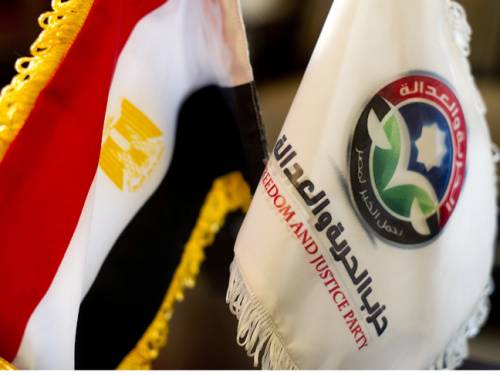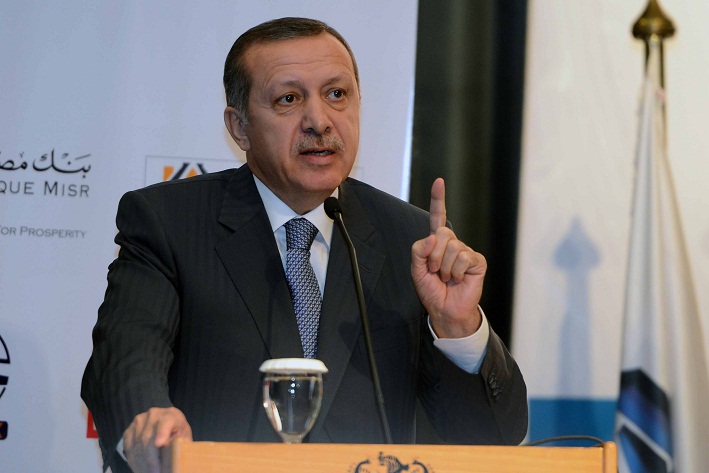 Despite the fact that the countries of the Middle East are not currently consumed by war, and that there exists at best a cold peace, or a rather muffled sense of competition between them, it is still a shock to see that there do not exist larger cleavages between these countries with regards to their borders, and economic and social policy. Before we discuss these issues in detail it is important to identify which countries we are speaking of: Egypt, Iran, Turkey and Saudi Arabia.
Despite the fact that the countries of the Middle East are not currently consumed by war, and that there exists at best a cold peace, or a rather muffled sense of competition between them, it is still a shock to see that there do not exist larger cleavages between these countries with regards to their borders, and economic and social policy. Before we discuss these issues in detail it is important to identify which countries we are speaking of: Egypt, Iran, Turkey and Saudi Arabia.
We are not including Iraq and Syria in this list because they are not currently stable enough to have a large impact on the region. We also do not include Israel, not because we ourselves consider it to be a nation that is inherently foreign to the region, but rather because, at least under the rule of Benjamin Netanyahu and the country’s right wing, it is they themselves who do not consider Israel to be a real part of the region.
Israel considers itself a part of the global north, which is capable of living in peace with its neighbours, but only by subjugating their leaders.
Saudi Arabia, Egypt and Turkey for the most part have had a good relationship with the United States, however there still does exist a certain amount of tension between the last two despite the fact that they are, in the eyes of some, destined to be allies. However it is this supposed alliance which itself leads to the kind of tension that we will soon discuss.
On the other hand, although Iran has had a bad relationship with the United States, so have Syria and the Assad regime, which, despite that fact, has still managed to enjoy a good relationship with Egypt, particularly during the Mubarak regime. Examples such as these points to the possibility of Egypt and Iran enjoying a close relationship, despite the two’s opposite stance regarding the United States.
The economic and social policies of these four countries are also largely similar, however with regards to their politics, none, with the exception of Turkey, can truly claim that they are entirely democratic according to traditional standards regarding freedom of speech and the protection of human rights.
We can say that efforts at democratic reform are occurring in these countries at varying rates, however we cannot deny that all three look towards democracy with a certain level of apprehension, all the while donning the cloak of cultural specificity in order to justify their doing so. Turkey is still a new democracy; however we can point to the existence of real debates regarding conflicts within its borders, such as those between Turks and Kurds, and the armed forces and Islamist movements, as evidence of the country’s democratic nature.
In addition to similarities regarding their economic and political orientations, all four of these countries can be considered to be part of the third world, also known as the global south, and therefore face similar challenges and problems. It should be noted that the people that make up these countries, Egyptians, Arabs, Turks and Persians, have been living in the region for thousands of years, having established a number of empires and civilisations that have often ruled over more than one of these groups at any given time.
That being said, if these countries are so similar, face the same problems and challenges, and are made up of people who have lived side by side for thousands of years, then why don’t they all have better relationships with one another?
The reason for this may be that all of these countries, to varying degrees, are still consumed by the notion of identity and the need to define it not just for themselves, or the ‘Muslim World’, but rather the whole world in its entirety. Egypt today, under the rule of the Muslim Brotherhood and its network that extends to 68 different countries, is consumed with the notion of exporting its image and identity.
Mubarak on the other hand, was not concerned with doing so, and furthermore, chose to fill his regime with others who were equally apathetic about the idea. Perhaps this explains the close relationship between Mubarak and Assad of Syria; despite the fact that both had different economic outlooks and conflicting relationships with the west, neither one sought to influence or mould the image of the other.
We are now called to look at the budding relationship between Egypt and Turkey, which we should note is not founded upon shared, mutual interests imposed onto them by history, but rather the need to create a Sunni axis in the region capable of warding off its Shi’a counterpart.
Whereas this relationship is tactical, any attempt to create an alliance based on strategic interests would be doomed to fail, as the Muslim Brotherhood, as we discussed before, inevitably seeks to export its image to Turkey, while at the same time fearing the prospect of Turkey doing the same. This could happen either via direct export, or more likely as a gradual spread similar to a virus that would inevitably take over if relations between the two countries become too strong.
It is also truly remarkable that the Iranian revolution, which inspired and strengthened the role of political Islam in Egypt, did not lead to the rise of a powerful Shi’a movement, but rather helped increase the popularity of the Muslim Brotherhood. This same scenario happened when Saudi Arabia attempted to export Wahhabism to Egypt; however, in this instance, the Muslim Brotherhood became powerful enough to reverse the tide and export its own image to the kingdom.
Peace and security in the region is inherently linked with economic development, and also the extent to which Arabs, Egyptians, Turks and Persians can co-operate and work together instead of creating relationships built on tension, competition and mutual mistrust. In other words, instead of forming relationships characterised by a cold peace, what is truly required is that countries stop seeking to export their image and/or revolution to the rest of the region.
In other words, countries must stop seeking to intervene in the affairs of others. The biggest problem of course in this respect, is determining the extent to which countries in the region can criticise their neighbours for being undemocratic and violating human rights, without appearing as if they are in fact trying to intervene in the affairs of others.
Needless to say, conservative, reactionary forces in the west are bound to try and influence the course of events in the region for the worse. For this reason, in order to achieve a state of co-operation and harmony in the Middle East, it is necessary that these forces also lend their support to improving relations between all nations in the region.
And so the question remains: When will countries in the region stop seeking to export their image, identity and revolutions?




